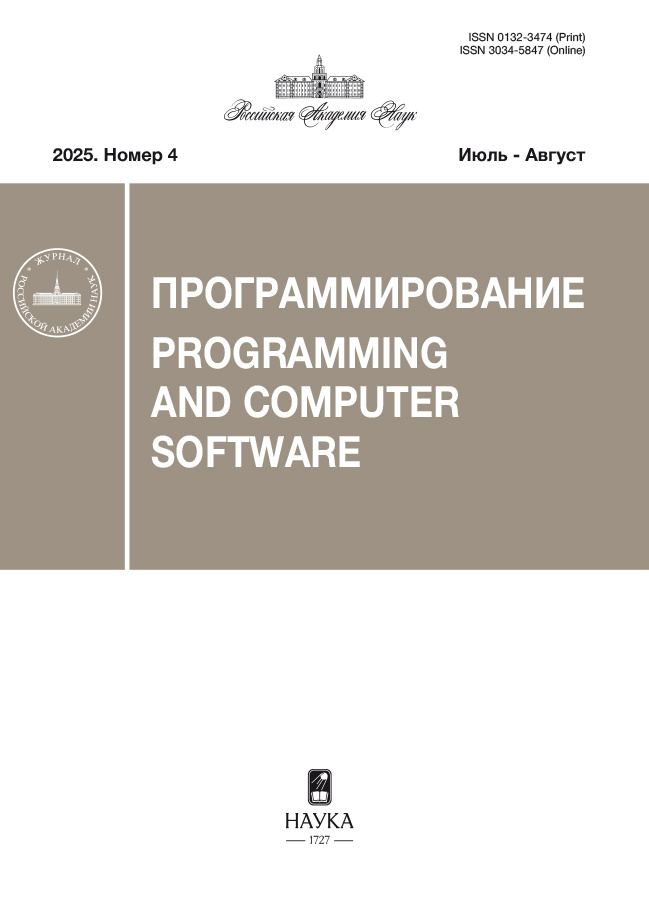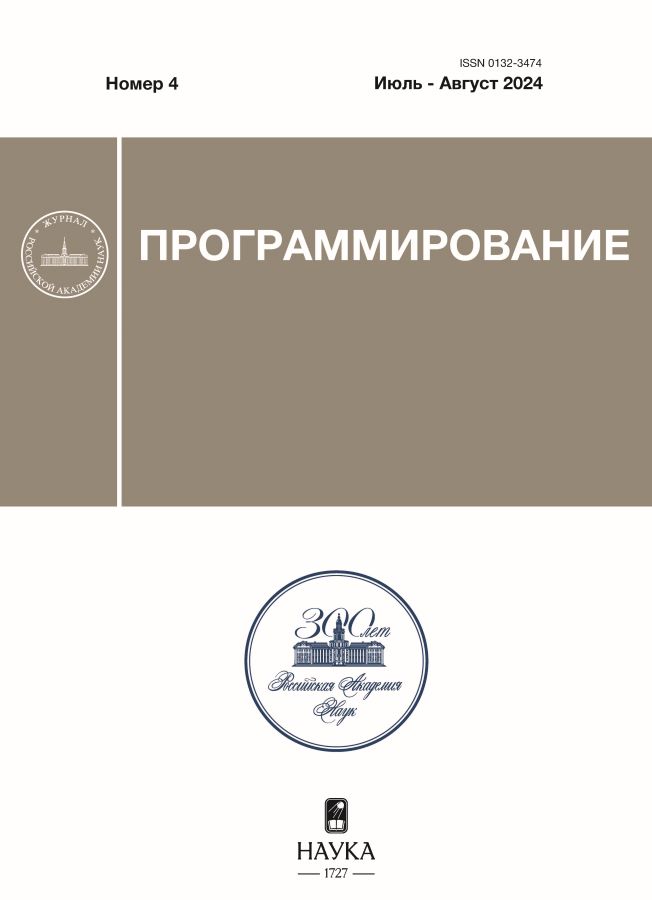Сравнительный анализ эффективности алгоритмов хэширования с точки зрения применения в схемах zk-SNARK в распределенных реестрах
- Авторы: Кондырев Д.О.1
-
Учреждения:
- Новосибирский государственный университет
- Выпуск: № 4 (2024)
- Страницы: 3-12
- Раздел: ИНФОРМАЦИОННАЯ БЕЗОПАСНОСТЬ
- URL: https://journals.eco-vector.com/0132-3474/article/view/675686
- DOI: https://doi.org/10.31857/S0132347424040012
- EDN: https://elibrary.ru/PTNTQN
- ID: 675686
Цитировать
Полный текст
Аннотация
В работе представлен сравнительный анализ эффективности алгоритмов хэширования с точки зрения применимости в системах на основе протокола неинтерактивного доказательства знания с нулевым разглашением zk-SNARK. Были рассмотрены хэш-функции sha256, sha3, poseidon, mime, blake2, которые находят наибольшее применение в современных распределенных реестрах. Для проведения экспериментов с замером параметров была разработана инфраструктура на основе набора инструментов ZoKrates. На основе полученных результатов определены границы практической применимости алгоритмов для задачи доказательства знания прообраза хэш-функции с помощью схем zk-SNARK в распределенных реестрах, а также выявлены возникающие проблемы эффективности.
Полный текст
Об авторах
Д. О. Кондырев
Новосибирский государственный университет
Автор, ответственный за переписку.
Email: dkondyrev@gmail.com
Россия, 630090 Новосибирск, ул. Пирогова, д. 2
Список литературы
- Kondyrev D.O. Overview of privacy preserving technologies for distributed ledgers // Eurasian Journal of Mathematical and Computer Applications. 2021. V. 9. № 1. P. 55–68.
- Ben-Sasson E., Chiesa A., Genkin D., Tromer E., Virza M. SNARKs for C: Verifying program executions succinctly and in zero knowledge // CRYPTO'2013, LNCS. 2013. V. 8043. P. 90–108.
- Ben-Sasson E., Chiesa A., Garman C., Green M., Miers I., Tromer E., Virza M. Zerocash: Decentralized anonymous payments from bitcoin // IEEE Symp. Security and Privacy, San Jose, USA. 2014. P. 459–474.
- NIST. FIPS PUB180–2, Secure hash standard. 2002.
- NIST. FIPS PUB202, SHA-3 standard: permutation-based hash and extendable-output functions. 2015.
- Aumasson J.P., Neves S., Wilcox-O’Hearn Z., Winnerlein C. BLAKE2: simpler, smaller, fast as MD5 // ACNS2013, Proceedings of the 11th International Conference Applied Cryptography and Network Security, Banff, AB, Canada. 2013. V. 7954 of LNCS, P. 119–135.
- Grassi L., Khovratovich D., Rechberger C., Roy A., Schofnegger M. Poseidon: A New Hash Function for Zero-Knowledge Proof Systems // Proceedings of the 30th USENIX Security Symposium. 2021. V. 2021.
- Albrecht M., Grassi L., Rechberger C., Roy A., Tiessen T. MiMC: Efficient Encryption and Cryptographic Hashing with Minimal Multiplicative Complexity // ASIACRYPT 2016. Proceedings of the 22nd International Conference on the Theory and Application of Cryptology and Information Security, Hanoi, Vietnam. 2016. Part I.V. 10031 of LNCS. P. 191–219.
- Шнайер Б. Прикладная криптография: протоколы, алгоритмы и исходные коды на языке C. 2-е изд. СПб.: Альфа-книга, 2018. 1040 с.
- Sun X., Yu F.R., Zhang P., Sun Z., Xie W., Peng X. A survey on zero-knowledge proof in blockchain // IEEE network. 2021. V. 35. № 4. P. 198–205.
- Konkin A., Zapechnikov S. Zero knowledge proof and ZK-SNARK for private blockchains // Journal of Computer Virology and Hacking Techniques. 2023. P. 1–7.
- Thibault L.T., Sarry T., Hafid A.S. Blockchain scaling using rollups: A comprehensive survey // IEEE Access. 2022.
- Raikwar M., Gligoroski D., Kralevska K. SoK of Used Cryptography in Blockchain // IEEE Access. 2019. V. 7. P. 148550–148575.
- Wang L., Shen X., Li J., Shao J., Yang Y. Cryptographic primitives in blockchains // Journal of Network and Computer Applications. 2019. V. 127. P. 43–58.
- Virza M. On Deploying Succinct Zero-Knowledge Proofs // PhD Thesis. Massachusetts Institute of Technology. 2017. 131 p.
- Eberhardt J. Scalable and Privacy-preserving Off-chain Computations // PhD Thesis. Technical University of Berlin. 2021. 284 p.
- Yaga D., Mell P., Roby N., Scarfone K. Blockchain technology overview // NIST Interagency/Internal Report (NISTIR) – 8202. 2018.
- Grassi L., Khovratovich D., Luftenegger R., Rechberger C., Schofnegger M., Walch R. Reinforced concrete: A fast hash function for verifiable computation // Proceedings of the 2022 ACM SIGSAC Conference on Computer and Communications Security. 2022. P. 1323–1335.
- Eberhardt J., Tai S. ZoKrates – scalable privacy-preserving off-chain computations // IEEE Intern. Conf. Blockchain. Halifax, Canada. 2018. P. 1084–1091.
- https://github.com/Zokrates/ZoKrates – ZoKrates.
- Groth J. On the size of pairing-based non-interactive arguments // EUROCRYPT 2016. Proceedings of the 35th Annual International Conference on the Theory and Applications of Cryptographic Techniques, Vienna, Austria. 2016. Part II 35. P. 305–326.
Дополнительные файлы















